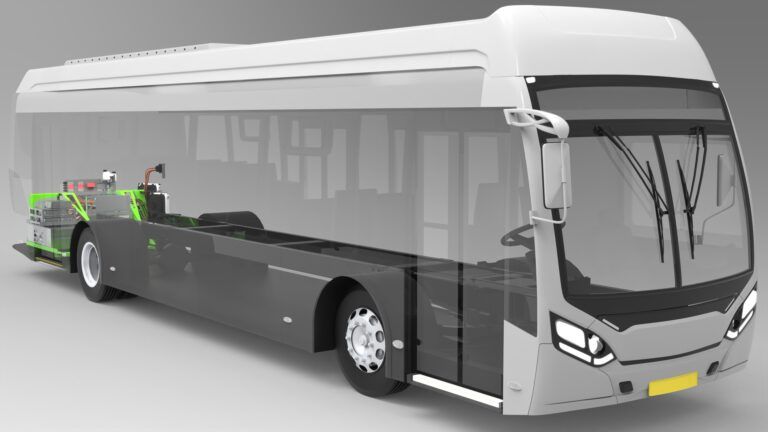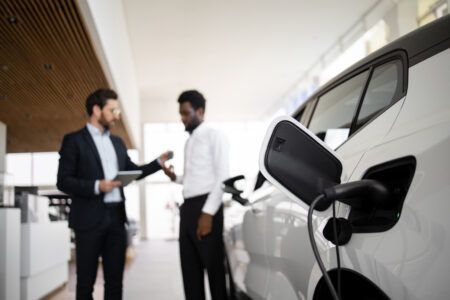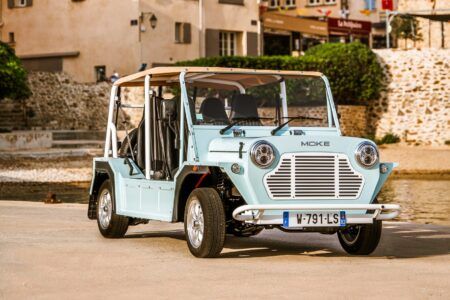London’s 8,500 diesel-powered buses burn through 322 million liters of fuel every year. Repowering even a small percentage has the potential to bring colossal benefits – and the technology is ready to be plugged in today, explains CEO of Kleanbus, Joe Tighe
For over a century, buses have been a mobility staple, with their formula remaining largely unchanged since inception. In the past decade, though, the industry has faced increasingly fierce scrutiny over its reliance upon fossil fuels – and for very good reason. Commercial transport is, slowly but surely, waking up to the reality that its addiction to diesel cannot be sustained if global environmental targets are to be met.
To put the sector’s dependence in context, at present, 97% of the 35,000 buses currently in use in the UK rely upon diesel fuel. On average each bus consumes 37,833 liters per year, meaning that in the UK alone, approximately 1.3 billion liters of diesel are consumed to sustain current annual levels of usage.
Look at this issue on a global scale and the scale becomes truly staggering. There are an estimated 5 million diesel-powered buses in use across the world today, consuming around 189 billion liters of diesel per year. This overwhelming figure illustrates the mammoth untapped potential for both monetary and environmental benefits using cutting-edge EV technology.
And no, the answer is not simply to scrap a diesel bus and replace it with a brand-new electric version. Our consumptive, throwaway culture is one of the main reasons why we are facing such an environmental catastrophe. With many thousands of tonnes of carbon created in the production of new buses, they are certainly better than diesel versions, but they are no panacea.
The optimum solution is to take an existing vehicle, which has already sunk its carbon many years previously, and give it a new lease of life through repowering.
Repowering sees the diesel (or hybrid) powertrain removed, exchanged for a state-of-the-art fully electric one. A concept that is very much in the zeitgeist, it upcycles a perfectly good product in the most environmentally-friendly and cost-effective way, making just as much sense for a large city-based operator with a fleet of 200 buses as it does for a rural operator with two.
It also solves the conundrum faced by operators who may only be a short way through the accepted lifecycle of a diesel bus: how to make the EV transition as quickly as possible, without resorting to the huge financial commitment of a new electric bus.
Kleanbus makes buses cleaner, quieter, more comfortable and more valuable assets for operators – and it does so quickly. Once a bespoke e-drivetrain has been designed and tested it takes less than two weeks to repower a single bus, getting the vehicle back in service in very little time. Electric repowered buses from Kleanbus also cost one-fifth of a new electric bus and have dramatically lower operating costs.
If we go back to our typical diesel bus example, the one that consumes 37,833 liters of diesel a year, such a vehicle would cost an operator more than £37,500 in fuel alone every twelve months, covering an average of 80,000 kilometers. A repowered version – charged overnight at the depot – would cost approximately just £10,000 in electricity, therefore delivering a saving of around £27,500 per year. Factor in Kleanbus’ offering of no upfront costs to make the switch, and arguments come no more compelling than that.
In addition, repowered buses are eligible for the Bus Service Operators Grant (BSOG) of 22p per kilometer, which when scaled up to an average of 80,000 kilometers per year can save the operator a further £17,600.
But there is more, with further operating savings in the shape of drastically lower servicing costs too, because electric buses – like all-electric vehicles – require less maintenance over the course of their lives. Such savings on maintenance will equate to circa £7000 per year when compared to the cost of maintaining a diesel-powered equivalent.
Cumulatively, money saved on fuel and maintenance is more than enough to cover the cost of repowering a diesel bus through Kleanbus. For operators, benefits are plain and simple.
Yet the biggest benefit is for our collective health. Air pollution has been linked to 40,000 deaths every year in the UK. Removing dirty diesel buses from our roads is a priority and repowering them is a route to doing so as rapidly as possible. Revolution is coming in the bus sector and repowering can play a crucial role.






